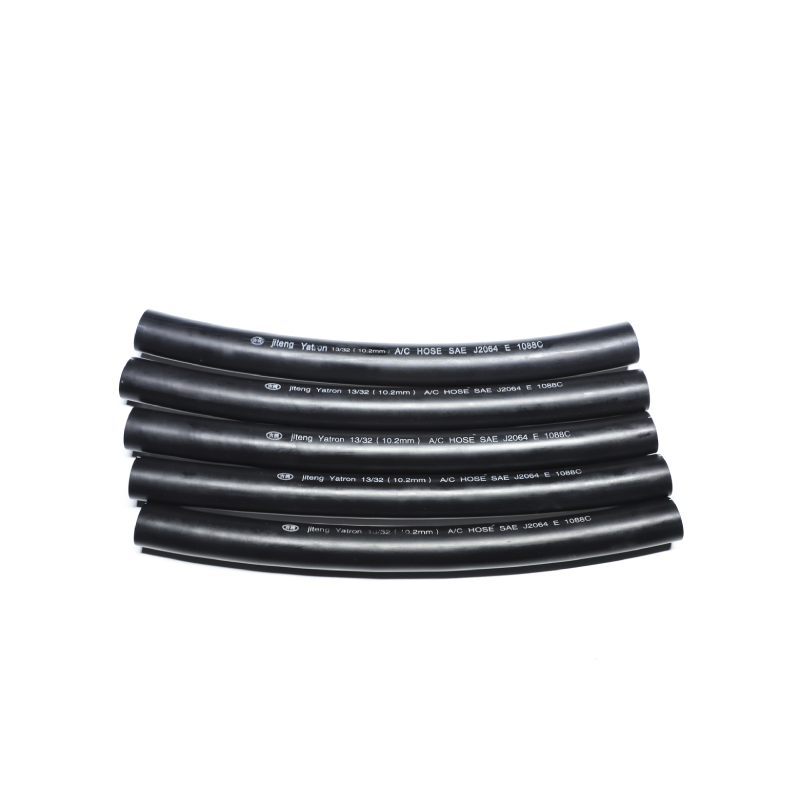Exploring the Essentials of Fridge Hose Lines for Optimal Performance
Abu . 19, 2024 03:17 Back to list
Exploring the Essentials of Fridge Hose Lines for Optimal Performance
Understanding the Importance of the Fridge Hose Line
The fridge hose line, often an overlooked aspect of refrigerator maintenance and functionality, plays a critical role in ensuring that your refrigerator operates efficiently and effectively. As a conduit for water supply, this hose facilitates the flow of water to the icemaker and water dispenser, making it an essential component for many modern refrigerators. Understanding its function, maintenance, and potential issues can save homeowners time and money, ensuring a seamless kitchen experience.
At its core, the fridge hose line is designed to transport water from your home’s plumbing system to the refrigerator. Depending on the refrigerator's design, the hose may connect to the back of the unit, where it is typically attached with a fitting or clamp. The water flowing through the hose is used for various purposes, such as producing ice and supplying water for drinking or cooking. Thus, a proper functioning hose line is crucial for those who rely on their refrigerator's integrated water features.
Over time, however, the fridge hose line can encounter several issues that may affect its performance. One common problem is leaks, which can stem from various factors including wear and tear, improper installation, or damage from external sources. Even a small leak can lead to significant water wastage and may cause water to accumulate around the refrigerator, leading to potential mold growth and damage to flooring and cabinetry. Regular inspections can help in identifying signs of wear, such as cracks or bulges in the hose. If leaks are detected, it is imperative to address the issue promptly, whether through repair or replacement of the hose line.
fridge hose line

Another frequent issue is clogs within the hose, which can occur due to debris build-up over time. This blockage can hinder the flow of water to the refrigerator, leading to problems with ice production or water availability. Homeowners should ensure that the water supply used for the fridge hose line is clean and free of contaminants. Flushing the water line periodically can help to dislodge any accumulated particles, promoting optimal water flow.
Installation of the fridge hose line also requires careful consideration. An improper installation can lead to excessive stress on the connections, increasing the likelihood of leaks or kinks. When setting up the fridge hose line, make sure to follow the manufacturer's guidelines closely. Using high-quality materials and ensuring that all connections are tight can go a long way in maintaining the system's integrity.
In terms of maintenance, users should be mindful of the hose's material. Rubber hoses are often used; however, they can degrade over time. Consider using braided stainless steel hoses, which are more durable and resistant to kinks and ruptures. This upgrade may represent a higher initial cost, but the long-term benefits in terms of reliability and reduced risk of leaks can be well worth it.
To sum up, the fridge hose line is a vital component of a refrigerator equipped with water and ice features. Regular inspections, timely repairs, and proper installation are key to prolonging the life of the hose and ensuring uninterrupted service. By prioritizing hose line maintenance, homeowners can enjoy the convenience of fresh ice and cool water without the headaches associated with leaks or inefficiencies. Being proactive can lead to a healthier kitchen environment and a more efficient appliance, ultimately enhancing the overall cooking and dining experience. Investing time and resources into the upkeep of your fridge hose line is an investment in your home’s functionality.
